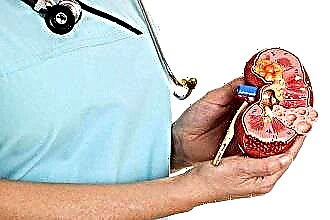Viral tonsillitis (acute tonsillitis) is an infectious disease in which the tonsils are affected. Many people call any cold a sore throat, this is fundamentally wrong. We are talking about different pathologies, with a different clinical picture, treatment, complications. There are more than five forms of acute tonsillitis (lacunar form, catarrhal, herpetic, necrotic, follicular, laryngeal, syphilitic, phlegmous). Each species has its own characteristics. Only a specialist can distinguish the varieties of the disease from each other and from other colds. Therefore, at the first appearance of sore throat, you need to consult an ENT doctor, and not self-medicate.
Causes and manifestations
Viral sore throat is caused by such pathogens: influenza virus, parainfluenza, rhinoviruses, adenovirus, enteroviruses, measles and herpes simplex virus, Epstein-Barr virus (herpesvirus type 4). Viral tonsillitis in adults occurs more often than bacterial, but less often causes serious consequences. The most common route of transmission is airborne, less often contagious. Viruses are normally found in the human body. They are activated under the influence of adverse factors:
- weakened immunity;
- swimming in a cold pond;
- eating cold food and water;
- hypothermia;
- chronic fatigue, stress;
- malnutrition, poor social conditions.
Symptoms of a viral sore throat are different from those of a bacterial. The incubation period lasts 3-4 days.
The main manifestations of infectious tonsillitis in adults:
- the temperature is either normal or rises to 38 degrees;
- headaches, muscle pains, joint pains, sore throat;
- an increase and slight soreness of the cervical lymph nodes;
- viral sore throat differs from bacterial accession of rhinitis;
- redness of the pharyngeal mucosa, swelling;
- dry cough, sneezing, watery eyes;
- light bloom on the tonsils;
- sleep disturbance, appetite;
- in rare cases, nausea, vomiting.
Viral tonsillitis is highly contagious. It is very easy to get infected with this disease from a sick person, especially people with weakened immunity. You need to contact as little as possible with infected people.
Diagnostics and treatment
Pharyngospopia is the main method for diagnosing infectious tonsillitis in adults. ENT doctor conducts examination of the throat with a special mirror, listens to the patient's complaints, prescribes specific tests and a blood test to clarify the diagnosis.
examination of the throat with a special mirror, listens to the patient's complaints, prescribes specific tests and a blood test to clarify the diagnosis.
The viral form of the disease is more difficult to diagnose than the bacterial form. Without determining the causative agent of the infection, it is impossible to prescribe adequate treatment.
Treatment regimen
Viral sore throat is not treated with antibacterial drugs, like bacterial. Antiviral drugs are almost ineffective in this pathology. The main therapy is aimed at alleviating the clinical picture of the disease. Conservative measures are carried out at home, very rarely patients are hospitalized.
Viral sore throat in adults is treated for 7-10 days, but in most cases, some symptoms last up to two to three weeks, such as cough, runny nose, perspiration.
- The patient should adhere to bed rest for at least the first 2-3 days of the disease, especially with signs of intoxication. You cannot lead the previous active lifestyle, since the body is already weakened, and gives all its strength to the fight against infection. Many people ignore this critical point of therapy.
Much attention must be paid to creating the microclimate necessary for recovery in the room where the sick person is. The air temperature should not exceed 20 degrees! Humidity is quite high, 50-70%, because viruses are activated in a dry, hot environment. You need to air the room more often.
If during the acute period physical activity is not limited to a minimum, then the course of the disease will be heavier and longer. Also, in this case, the risk of developing complications is much higher.
- Regular gargling with an isotonic solution (one teaspoon of salt per liter of warm boiled water). Gargling with a decoction of herbs with anti-inflammatory effect (chamomile, sage, violet, linden blossom, St. John's wort, aloe, oregano, yarrow). Herbal inhalation with eucalyptus, lemon, cinnamon essential oils.
- The patient should drink plenty of fluids. Freshly squeezed vegetable and fruit juices, fruit drinks, jelly are especially useful. Solid and hot foods should be avoided. It is necessary to limit the consumption of fried, flour, sweet, spicy foods, pickles, sauces.
- To relieve pain and lower fever, they are prescribed: paracetamol, nimesil, ibuprofen, throat sprays. To relieve throat swelling, antihistamines are used: cetrin, diazolin, donormil. To relieve swelling of the nasal mucosa, vasoconstrictor sprays are used.
- A complex of multivitamins is prescribed to strengthen the immune system.
- Local treatment. Warming compresses are placed on the throat to promote
 improving blood circulation. You can put an enema with a hypertonic solution (for 200 ml of warm water, 2 teaspoons of salt). This tool not only lowers high fever, but also effectively fights off pathogenic microbes.
improving blood circulation. You can put an enema with a hypertonic solution (for 200 ml of warm water, 2 teaspoons of salt). This tool not only lowers high fever, but also effectively fights off pathogenic microbes.
A dressing with 8-10% hypertonic solution is an excellent remedy for combating both the causative agent of the disease and its manifestations. Heat distilled water to 50 degrees, dissolve 3 level tablespoons of salt in it. Moisten a cotton cloth in the medicine, wring it out, apply it to the forehead and back of the head for headaches, wrap the neck for sore throat, attach the bandage with a bandage. Keep until the condition is relieved. A dressing with such a product absorbs viruses and toxins, cleansing the fluid in the tissues with which it comes into contact.
You cannot cover the dressing with a hypertonic solution with a film, creating a greenhouse effect. It is necessary that such a bandage allows air to pass through.
Complications and prevention
Viral sore throat in adults rarely ends with complications. But if the treatment is untimely or inadequate, then this disease can end in unpleasant consequences:
- acute otitis media;
- tonsillitis can become chronic;
- pyelonephritis;
- rheumatism.
Prevention:
- if possible, avoid hypothermia;
- eat well;
- try not to contact with infected people;
- strengthen immunity, lead an active lifestyle, give up bad habits;
- in the season of exacerbations, take multivitamin complexes;
- if there is an infected person in the family, then he must be isolated from other family members, especially if there are children. The person caring for the sick should wear a mask during contact, wash their hands after contact. It is necessary to allocate separate dishes to the sick person, disinfect it every time after eating, change his bedding, linen and towels daily. All this must be washed separately from the rest of the laundry.
Preventive measures will increase the body's defenses and avoid acute tonsillitis, or help to transfer the disease in a mild form.

 improving blood circulation. You can put an enema with a hypertonic solution (for 200 ml of warm water, 2 teaspoons of salt). This tool not only lowers high fever, but also effectively fights off pathogenic microbes.
improving blood circulation. You can put an enema with a hypertonic solution (for 200 ml of warm water, 2 teaspoons of salt). This tool not only lowers high fever, but also effectively fights off pathogenic microbes.

